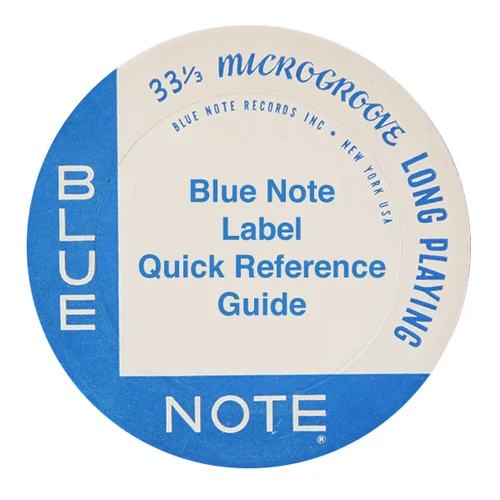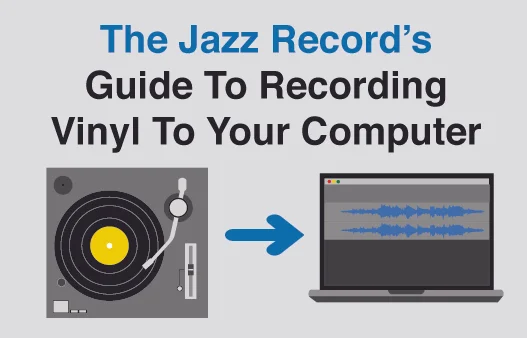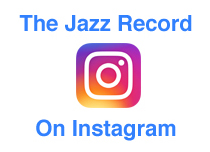Balanced Beauty: John Coltrane Quartet - "Ballads"
/John Coltrane Quartet • Ballads • 1963 • Impulse! Records
Recorded Dec 21, 1961 and Sept 18 & Nov 13, 1962 at Rudy Van Gelder Studios
The Selections:
The Tracks:
A1. Say It (Over And Over Again)
A2. You Don't Know What Love Is
A3. Too Young To Go Steady
A4. All Or Nothing At All
B1. I Wish I Knew
B2. What's New
B3. It's Easy To Remember
B4. Nancy (With The Laughing Face)
The Players:
John Coltrane - Tenor Sax
McCoy Tyner - Piano
Jimmy Garrison - Bass (except B3)
Reggie Workman - Bass (B3)
Elvin Jones - Drums
The Record:
The John Coltrane Quartet
It's well known that John Coltrane's late-career output on Impulse! has caused quite a bit of disagreement among critics and jazz fans over the years. Folks tend to take a pretty firm position on whether Trane's headlong embrace of free jazz should actually be considered "jazz music" at all. What has been somewhat lost with the passing of time - mostly because it seems so ridiculous in hindsight - is that at the beginning of the sixties as he began his tenure at Impulse!, Trane was also in the crosshairs of critics and fans who felt they knew what was - and wasn't - proper jazz music, and many of them were very vocal that they didn't like what he was doing one bit.
Critics were extremely harsh when it came to the direction that Coltrane's music was heading after he left Atlantic Records - especially his recordings with Eric Dolphy - claiming that it wasn't jazz music at all. John Tynan, associate editor of Downbeat magazine at the time, famously wrote in 1961:
“I listened to a horrifying demonstration of what appears to be a growing anti-jazz trend exemplified by these foremost proponents of what is termed avant-garde music. I heard a good rhythm section…go to waste behind nihilistic exercises of two horns…Coltrane and Dolphy seem intent on deliberately destroying swing. They seem bent on pursuing an anarchistic course in their music that can only be termed anti-jazz.”
[This critique of their music was enough for Coltrane and Dolphy to respond to the charges in the 1962 Downbeat article "John Coltrane and Eric Dolphy Answer The Jazz Critics," a fascinating read that you can check out here.]
Because Ballads was released after this rising tide of criticism, there has been quite a bit of blowback about the album over the years. Trane was accused of "selling out" to his critics by softening his sound. It has been insinuated that Trane was forced to make an album he didn't want to make by Impulse! producer Bob Thiele, and was never really behind the project. As it turns out, Thiele and Coltrane were taken aback by the critics, but they weren't trying to impress them with Ballads, they were going to show them up. As Bob Thiele recalled it:
"Both "Ballads" and "John Coltrane with Johnny Hartman" came about because of the jazz critics. We decided to straighten these guys out once and for all by showing them that John was as great and complete a jazz artist as we already knew, and it was one of the few times that he accepted a producer's concept."
Coltrane, of course, could have cared less about what the jazz critics thought about him, and as he later told the jazz writer Frank Kofsky:
"Impulse! was interested in having what they might call a balanced sort of thing - a diversified sort of catalog, and I find nothing wrong with this myself. [The] ballads that came out were definitely ones I felt at the time I chose them."
(these quotes were taken from Ashley Kahn's excellent book The House That Trane Built: The Story of Impulse Records)
All of this is a long way of saying that Ballads should be taken for what it is: a beautiful record, one that shows the ridiculous talents of not only Coltrane, but of Tyner as well, and while it may have been a short detour by Trane before he exploded off into the nether regions of jazz music a few years later, it is still a fantastic document of one of the premier jazz groups of the 1960s. Even a cursory listen to the album easily dismisses any hint that the musicians didn't want to make this record, it would be impossible to sleepwalk through tracks like "You Don't Know What Love Is" and "I Wish I Knew" and impart them with even a fraction of the emotional heft that the Quartet achieves. This is the type of jazz album in which the music just washes over the listener with it's restrained grace and beauty, and while it may not have the adventurousness that some listeners think Trane should have had each and every time he recorded, I'd say it shows off a side of him that only makes us appreciate his more bold and daring albums even more.
The Vinyl:
The Details: Determining if you have a first pressing of Ballads is not as simple as it might seem, and there are plenty of online folks peddling "original" or "first pressings" when in fact they don't have either. Definitive first pressings will have "A PRODUCT OF AM-PAR RECORD CORP" along the bottom and the absence of the A or B delineation after the catalog number. The problem with Ballads is that these first pressings are rare, and the majority of early pressings out there have "A PRODUCT OF ABC-PARAMOUNT RECORDS, INC." along the bottom and the A or B after the catalog number, and are listed as first pressings online, either because the seller doesn't know or doesn't care to find out exactly what they are selling. Adding further to the confusion is that there are also plenty of copies out there that have a combination of no A or B after the catalog number, but still have the later "ABC-PARAMOUNT" text. All of this is a longwinded way of saying you need to look carefully before purchasing any copy of Ballads that claims to be an original or first edition. For the most part, you will find pressings like the one I came across, which can be best described as an early pressing dating from between 1963 and 1966 (when Impulse! introduced a new label design). As far as I've read there is no difference in sound quality between an actual first pressing and the subsequent reissues over the next couple of years, so don't go overboard trying to get a definitive original pressing, unless absolutely having to own a first pressing of Ballads is crucial to your well-being.
The Price: I paid $41 at a local shop, a very nice price for an album that goes for between $50 and $300 online. There is quite a bit of wear to the corners, but other than that the cover is still nice and glossy, and the vinyl rates an easy VG+ with very little surface noise.
The Sound: Yet another wrinkle with early pressings of Ballads is that while some copies have a VAN GELDER stamp, others (like mine) have Bell Sound stamped in the runoff. No one seems to know exactly why some LPs were pressed at Bell Sound, but the general consensus online appears to fluctuate between either no difference in sound quality or that the Van Gelder stamped pressings sound infinitely better. In any case, my Bell Sound pressing sounds fantastic with it's luscious and deep analog playback, and the interplay between Trane's delicate tenor lines and Tyner's piano runs are a beauty to behold in this setting.
Final Thoughts:
Interestingly, Ballads was one of the first jazz LPs I picked up when I first starting haunting used record shops some twenty-five years ago (there were so many more of them then!). That copy was one of the late eighties non-gatefold MCA Records re-pressings with alternate cover artwork (to match the new CD covers) and was touted as a digitally remastered "audiophile" pressing. At the time, early in my exploration of the many facets of modern jazz music, I had very little interest in Ballads, I wanted "exciting" and "happening" jazz music, none of this slow introspective stuff. As a result, for years I fell into the camp that dismissed Ballads as a "lesser" Coltrane album, one that wasn't representative of what made him so great and an offering to the less sophisticated jazz listener. As the decades passed, I realized the folly of my thinking and came to appreciate the album and it's firm place in the Coltrane discography. Finally hearing the music on vintage vinyl has made me appreciate it even more, without the digital sheen the music packs an even more emotional punch, and show off what made Coltrane and the rest of the Quartet such a force to be reckoned with.
New posts are published every Monday, although occasionally life interferes, so the best way to keep up on the happenings at The Jazz Record is to subscribe to our email list.












